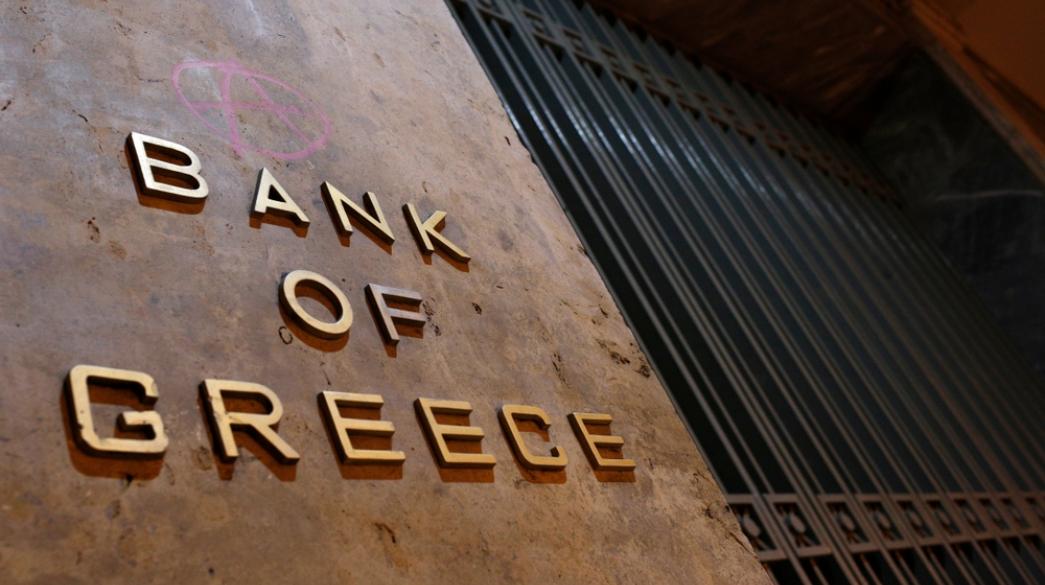Yiannis Papadogiannis

Bank of Greece favors bad bank solution for NPL problem
The bank's technocrats examined in detail all the alternatives for tackling the problem (maintaining the current strategy of loan securitizations, capital increases, bad bank, etc.) and concluded that creating a single bad bank achieves maximum efficiency, as it also achieves the largest reduction in non-performing loans per unit of capital.
In a bid to provide a final and radical solution to Greece's problems with non-performing loans, the Bank of Greece (BoG) is favoring the creation of a bad bank, in the belief that the new recession being fueled by the pandemic makes the dealing of this chronic problem on a new basis inevitable.
According to sources, the proposal for the creation of a bad bank, which will take over the management of all problem loans held by banks, will be examined by the Bank of Greece's Committee on Credit and Insurance Issues (EPATH) in coming days.
The bank's technocrats examined in detail all the alternatives for tackling the problem (maintaining the current strategy of loan securitizations, capital increases, bad bank, etc.) and concluded that creating a single bad bank achieves maximum efficiency, as it also achieves the largest reduction in non-performing loans per unit of capital.
According to sources, the plan is being welcomed by the ECB, with the most important obstacle being the stance of the EU's Competition Directorate, which is concerned about the risk of state aid being provided. The ECB's plan is to place with the bad bank, both the existing bad loans (incorporating special provisions so as not to create an issue of state guarantees being provided) as well as the new NPEs that will be created due to the new crisis on which there will be greater flexibility.
Since the outbreak of the epidemic and under the scope of a new economic downturn and the creation of a new generation of NPEs, the BoG has begun work on developing new alternative strategies to deal with non-performing loans, estimating that the next crisis is changing conditions and plans drawn by banks on reducing bad loans. The BoG believes that the current situation creates a window of opportunity for Greece and domestic banks to deal definitively with the big problem and that we must move quickly and in a structured way, take advantage of the situation, and achieve a total solution through the creation of a bad bank.
The peculiarity for domestic banks is that they are already burdened with a very high stock of non-performing loans, about 68 billion euros, to which a new generation of problem loans will be added due to the current crisis. At the end of 2019, the ratio of non-performing loans of Greek banks was close to 37 percent, while the corresponding index of loan delays in the eurozone was 3.4 percent.
Since 2015, domestic banks have been struggling to reduce non-performing loans, with poor results (for various reasons) with a bad loan ratio close to 40 percent. The big recession expected in 2020 will significantly worsen the quality of bank portfolios, but so far visibility is extremely limited and the impact will depend on the size of the recession. The most modest estimates foresee 6-7 billion euros of new NPEs being formed. However, many estimates see the number at around 10 billion euros, while others fear the figure could be even higher.
2020 - a lost year
Even in the good case scenario, where there is a quick recovery of the economy after it plunges this year, the planning by banks for loan securitizations and the sale of bad debt will go back many months, while there are many questions about how the new NPLs market will develop.
It is noted that even mature projects, such as Eurobank's Cairo securitization, which will be acquired by doValue, are delaying (Eurobank executives note, however, that it is a matter of days before the transaction is completed) while most talks among the other systemic banks on new securitizations have frozen. Deteriorating market conditions have led to a large increase in CDS, raising the cost of participating in the Hercules bad loan project.
There are many questions, such as how the current situation will affect the ratings and valuations of NPE securitizations, while there will also be pressure from the expansion of the NPL market as many new ones will also be created in other European countries. Given that the institutional framework in countries such as Germany, Italy, and Spain is more clear and effective than Greece's, the main reason that a fund will prefer a bad loan in Greece will be higher returns, ie low market prices. In this context, many express doubts about the possibility of taking advantage of state guarantees provided by the Hercules plan.
BoG sources note that the plan for the bad bank will be voluntary and that if a bank can proceed with its original plan, it should do so. However, they emphasize that there must be alternatives and tools available as conditions will worsen soon. Even before the health crisis, many investors questioned the ability of the Hercules plan to solve the problem. The new conditions require a new strategy, they point out. Additionally, the bad bank plan provides for the utilization of all relevant infrastructure that has been set up and the experience of loan servicers.
Bank of Greece governor Yiannis Stournaras spoke about the advantages of a bad bank a few days ago in comments to the Financial Times, saying that that the crisis has taught us that by creating a bad bank, lenders could quickly get rid of non-performing credit. However, it must be done quickly, Stournaras added.







